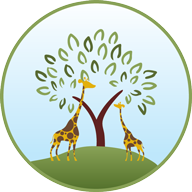Infant Massage: It’s Amazing
By: Darlene Galeski, RN, CEIM, CCHC
Infant massage is an “age old” tradition going back to the beginning of time. Studies completed in many (different cultures have found that babies that were massaged were less aggressive and violent and showed more Compassion and cooperation as they grew older. Vimala McClure, author of Infant Massage, A Handbook for loving parents, introduced infant massage to the United States in the early 1970’s after traveling in India and working in an orphanage there.
From the Eskimos of the Arctic to East Africa, from South India to the United States, babies are lovingly massaged and caressed every day. Mothers all over the world know their babies need to be held, carried, rocked and most often touched.
There are four main benefits of infant massage and nurturing touch:
- Stimulation: (circulation, digestion, respiration, immune, skin, language, nervous system, etc.) Skin sensitivity is one of the earliest developed functions, most crucial for all the sensory systems for overall healthy development.
- Relaxation: (releases stress, produces calming hormone, less hypersensitivity; less hyperactivity, helps to regulate sleep patterns, etc.) The ability to relax consciously is a tremendous advantage in coping with the pressures of growing up in a modern society.
- Relief: (sinuses, growing pains, teething, colic, constipation, excess mucus, etc.) In times of some discomforts and illness, a massage may offer comfort. Always consult your physician first with any concerns about your childs health or illness.
- Interaction: (bonding, communication, eye contact, voice/hearing, one to one activity, etc.) Current and ongoing studies show that touch is one of the most critical elements in the bonding process.
As a plus, babies and parents immediately benefit from infant massage along with siblings, grandparents, and society in general. Infant massage is a communication process between parents and babies. Even without conscious awareness most moms usually begin massaging their baby, ever so gently from the moment of birth. It is part of the bonding process and the urge to get to know her baby through all her senses. Massage can be started as soon as parents desire, although we encourage parents and full-time care givers (foster parents, etc.) to take infant massage classes when babies are about two months old.
Understanding and learning the strokes is a simple-t-learn, yet a very profound process. Parents always ask the baby’s permission before doing the massage and watch the baby for their response throughout the massage, responding to their cues and respecting their communication. A massage should never be done if the baby is not ready or if the baby becomes disinterested. In situations where a baby is experiencing a physical condition (prematurity, special needs, hypersensitive) where massage is not suitable, parents are taught alternatives that are considered to be nurturing touch. The most important thing is that babies (and parents!) relax.
For the first six or seven months, your baby will benefit most from a daily massage. As your child becomes more active through crawling or walking, you may want to reduce the frequency or change the time to meet your busy toddler’s needs. In the class you will learn what modifications you can use to adapt the massage for your child as they grow.
Infant massage classes are a tool that:
- Enhances parental confidence
- Can reduce potential for abuse
- Can help reduce postpartum depression
- Reduces isolation for parents
- Blends knowledge and practice
- Includes discussion and support
- Is for all parents and babies
- Is simple and fun
Darlene Galeski is a certified educator of infant massage.
Bonding by International Association of Infant Massageblockquote>
Bonding has been defined as a “unique relationship between two people that is specific and endures through time.”
Touch is a very powerful element in human bonding. Communication, both verbal and non-verbal, and prolonged eye contact are also important elements of bonding. Infant massage encompasses and supports all these vital aspects of bonding.
Delayed bonding may occur due to situations such as premature birth, recovery from caesarean, medical complications, adoption, lack of physical and emotional support and postnatal depression. In these cases, infant massage can help families recreate the elements of bonding, which may help a parent and baby fall in love with each other.
Massage may be helpful in encouraging the connection between parent and child as children grow. It may facilitate deeper understanding, integration and the connection with parents or caregivers. Some families have found that massaging their baby is particularly helpful in enhancing the bond with children with special needs.
Massage gives fathers a chance to connect and interact with their child on a deeper level than the usual day-to-day contact might provide. Fathers are always welcome in infant massage classes and some instructors even hold a special father’s class during their course.

